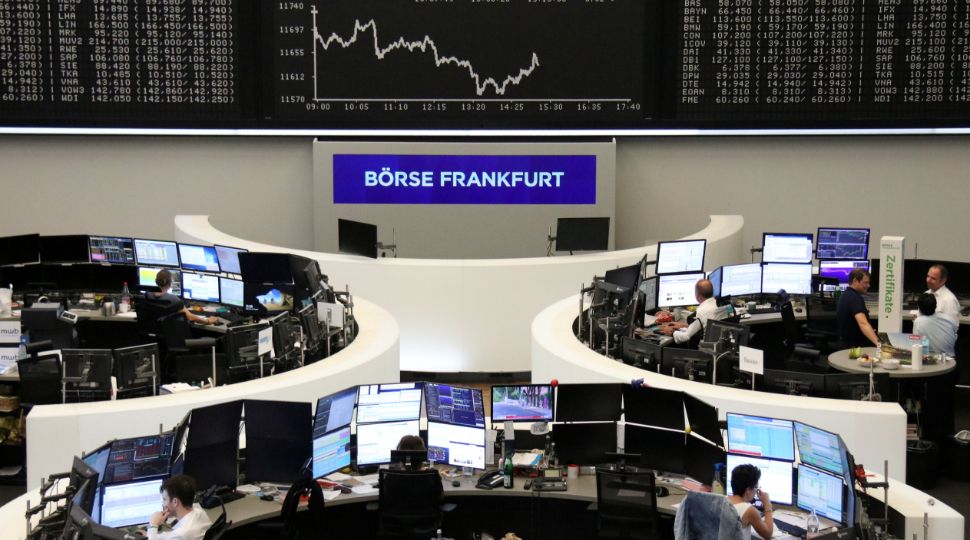The German Economy in Downturn: Effect on Poland and the EU

Since the middle of last year, Germany has been experiencing a clear economic slowdown. The year 2019 has not delivered any improvement so far, with second-quarter GDP falling by 0.1% compared to the first quarter. There is a rising likelihood that the coming months will further push the Federal Republic into recession.
The situation in Germany, whose economy has a GDP of €3.4 billion, is very important for the overall EU. In recent years, the German economy’s impact has been positive: the solid growth, excellent data from the labour market and its public finances strengthened trust in the stability of the euro area, balancing the impact of the debt crisis in Greece and Italy and stagnation in France. In the event of a recession, the impact would become unambiguously negative: the eurozone has no chance for prosperity without the economy that accounts for one-third of its potential. For this reason, questions about the sources of weakness in Germany’s economy and its possible responses to recession are gaining importance.
External Factors
The weakening GDP growth should primarily be linked to the collapse of industrial production. In June 2019, it decreased by 5.2% compared to June 2018 (by 1.5% compared to May 2019), which was the biggest regression in over a decade. The most common reason is the lower demand in the global economy. This has hit German exports, which mainly consist of products from its industrial sector.
The current slowdown in the world economy has additional factors, though, not only the low dynamics of production growth in China or worse GDP data in the U.S. and emerging markets. Equally important is the emergence of severe trade disputes between major economic powers, which can lead to the spread of protectionist practices around the globe. For now, the consequence of these disputes has been growing uncertainty about trade conditions, prompting enterprises to hold back investment and expansion into new markets. In the longer term, the existence of an open global economy, which a beneficiary is undoubtedly Germany, is in question.
The situation in Germany’s immediate vicinity, in particular the uncertainty associated with Brexit, did not help its economy either. The likely “no-deal” exit of the UK from the EU will mean the devaluation of the pound and the emergence of barriers to trade, which will further weaken German exports to that country. Italy needs to be added to the pool of uncertainty because it has been unable to emerge from stagnation and is further plagued by political crisis. The weakness of Italy—the third-largest economy in the euro area—reduces the chances of an economic recovery in the EU.
Possible Reactions
Given the unfavourable external environment, the stability of Germany’s economy is propped up by internal economic factors. The service sector—especially the construction industry—has developed strongly and high private consumption also continued. Germany’s strength is also its labour market, with its record low, barely 3.1% unemployment, and public finances with an impressive €45.3 billion surplus in the first half of 2019. These are data that still allow hope for slight GDP growth in the whole of 2019.
However, there are economists who warn against downplaying the current weakness as merely an external shock. They point to growing domestic problems—the difficult situation of the car industry in the face of the challenge of electromobility, high energy costs and taxes, excessive regulation, and the low level of investment, especially the public kind. Germany has coped poorly digitisation, and the condition of transport infrastructure is deteriorating. The lack of workforce is also considered a barrier to growth—the number of vacancies in 2018 was almost 800,000.
Interpretations regarding the sources of economic weakness in Germany have moved to disputes about possible reactions. Proponents of the market approach argue that the focus should be on reducing taxes (e.g., by abolishing the solidarity tax that assists eastern Länder), deregulation and improving investment conditions for companies. However, many experts say this is by far not enough. It is necessary to increase expenditure significantly to “replace” shrinking foreign demand and to stimulate the economy. Conditions for such activities have never been more favourable as the state has budget surpluses and can issue bonds with an effectively zero interest rate. Such a fiscal package could be intended not only for improving the quality of transport and digital infrastructure but also for completing the energy transformation.
This dispute about the course of action resonates strongly at the level of the CDU/CSU and SPD government coalition. The Christian Democrats represent a cautious stance towards fiscal expansion and do not intend to abandon the policy of “black zero” (balanced budget) in public finances. Social Democrats are far more open to spending and even question the sense of maintaining the constitutional “debt brake” (Schuldenbremse), in place since 2011. This measure means the Bund and Länder have very limited options for taking on new net debt. If the economic weakness lasts longer and overlaps with the election calendar (elections to the Bundestag in 2021), the issue of lifting the “debt brake” may become one of the key topics in the fight for voter support.
Conclusions
From Poland’s point of view, the weakening of the German economy is significant. Exports, which represent the equivalent of about 45% of Poland’s GDP, are more than one-fourth dependent on the German market (more than €62 billion in 2018). A large part of that is comprised of supplies as components for German industrial, globally active concerns, so Poland is likely to clearly feel the worse economic situation in its neighbour’s economy. For now, this is not happening: in the first half of 2019, exports to Germany increased by nearly 4.8%, and the scale of total turnover (€60.7 billion) allowed Poland to overtake the UK on the list of the most important trade partners of the Federal Re
The reason for the still positive trend may be that facing more challenging times, German companies have ordered more goods from cheaper Polish sub-suppliers while giving up less-competitive offers. It cannot be excluded that the companies are operating on delivery contracts concluded much earlier. However, if they are revised, the weakening of the German economy will also affect the condition of Polish industry. That is why the decision of the German government on whether to stimulate the economy through a large fiscal package increasing internal demand is of great importance for Poland. If it is launched, the likelihood of a slowdown in Poland’s economy would be much smaller. However, the direction of a possible increase in budget expenditure is not without risk as they may become integrated with the government’s so-called “climate package”, which would mean accelerating energy transformation and investing in new “green” technologies. In that scenario, the political differences between Poland and Germany regarding the pace of reaching climate neutrality in the EU could clearly increase.
From an EU point of view, Germany's response to the downturn may have significance that goes beyond simply boosting the region’s economic situation. If the federal government decides to expand fiscal expenditures and increase domestic demand, it would be likely to limit German trade surpluses due to increased imports. This would soften criticism of Germany from many EU Member States such as Italy and France which charge that the “black zero” policy has deepened macroeconomic imbalances in the Union and delayed the economic recovery after the 2008 crisis. Germany alone would probably have to be more tolerant of arguments—popular especially in the south of Europe—to less restrictively enforce fiscal discipline in conditions of economic crisis. In addition, a fiscal package could improve relations with the U.S.—President Trump has repeatedly threatened to impose punitive duties on imports from the EU, mainly because of the massive trade surpluses generated by Germany. Meanwhile, spending increases could lower them.


